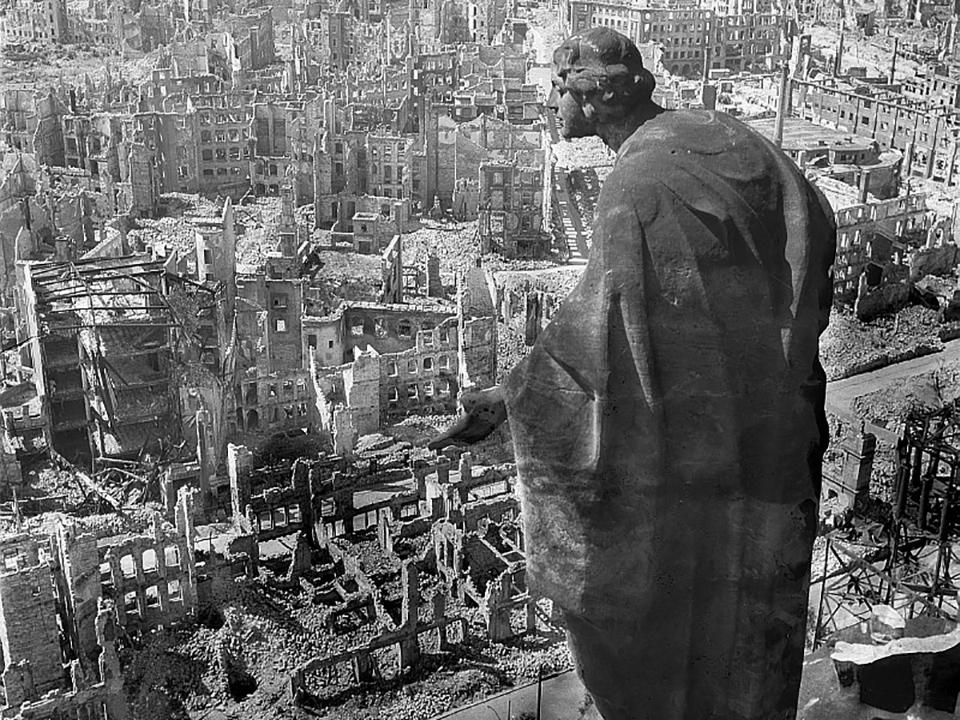As the flames of war raged across Europe during World War II, one city in particular bore the brunt of a devastating firestorm that would forever change its landscape and its people. Dresden, Germany, once renowned for its architectural beauty, became the target of a relentless bombing campaign that would leave it in ruins. In this article, we will explore the harrowing events of the Dresden firestorm through the eyes of a Delta Force veteran who brings a unique perspective to this tragic chapter in history. Join us as we deconstruct the events that unfolded in Dresden and delve into the impact of this devastating firestorm on both the city and its inhabitants.
The Devastating Impact of WWII Dresdens Firestorm
During World War II, the city of Dresden experienced one of the most devastating aerial attacks in history. The firebombing of Dresden by Allied forces on February 13-15, 1945, resulted in a firestorm that destroyed the city and killed thousands of civilians. The intense heat generated by the firestorm reached temperatures of up to 1,600 degrees Fahrenheit and created hurricane-force winds that swept people off their feet.
The aftermath of the Dresden firestorm left the city in ruins, with historic buildings, homes, and infrastructure decimated. The death toll from the bombing has been estimated to be between 22,700 and 25,000, although some sources suggest the number may be higher. The destruction of Dresden raised questions about the morality and necessity of targeting civilian populations during wartime, sparking debates that continue to this day.
Insights from a Delta Force Veteran
In a riveting discussion with a Delta Force veteran, we gained invaluable insights into the devastating firestorm that engulfed Dresden during World War II. The veteran, who served in multiple combat missions throughout his career, provided a unique perspective on the events that transpired in the historic city.
During our conversation, the veteran emphasized the following key points:
- The strategic significance of Dresden as a transportation hub
- The controversial decision to bomb the city and the resulting civilian casualties
- The long-term impact of the firestorm on Dresden’s architecture and population
Deconstructing the Strategic Decisions and Consequences
Explore the intricate web of strategic decisions and their far-reaching consequences as a Delta Force veteran dissects the devastating firestorm that engulfed WWII Dresden. Delve into the tactical intricacies and ethical dilemmas faced by military leaders during this dark chapter of history.
Uncover the harsh realities of war as we examine the aftermath of Dresden’s destruction, the human cost of such strategic decisions, and the lessons learned for future generations. Through a detailed analysis of key events and decisions, gain a deeper understanding of the complexities of warfare and the lasting impact it leaves on both soldiers and civilians.
Recommendations for Remembering and Reflecting on History
In his insightful analysis of the WWII Dresden bombing, Delta Force veteran James Smith provides valuable recommendations for remembering and reflecting on this tragic event in history. Smith emphasizes the importance of honoring the memories of the innocent civilians who lost their lives during the firestorm, highlighting the need for empathy and understanding when examining the impact of war on civilian populations.
Smith suggests that individuals take time to visit memorials dedicated to the victims of the Dresden bombing, engage in thoughtful discussions about the ethical implications of strategic bombing campaigns, and read personal accounts of survivors to gain a deeper understanding of the human toll of war. By actively engaging with the history of events like the Dresden bombing, Smith believes that we can learn valuable lessons about the consequences of war and strive towards a more peaceful future.
The Conclusion
as we delve into the harrowing accounts of the firestorm in WWII Dresden through the eyes of a Delta Force veteran, we are reminded of the devastating impact of war on civilian populations. The meticulous deconstruction of this tragic event serves as a poignant reminder of the importance of reflecting on history and understanding the human cost of conflict. May we use these insights to strive for a more peaceful and just world for future generations.


